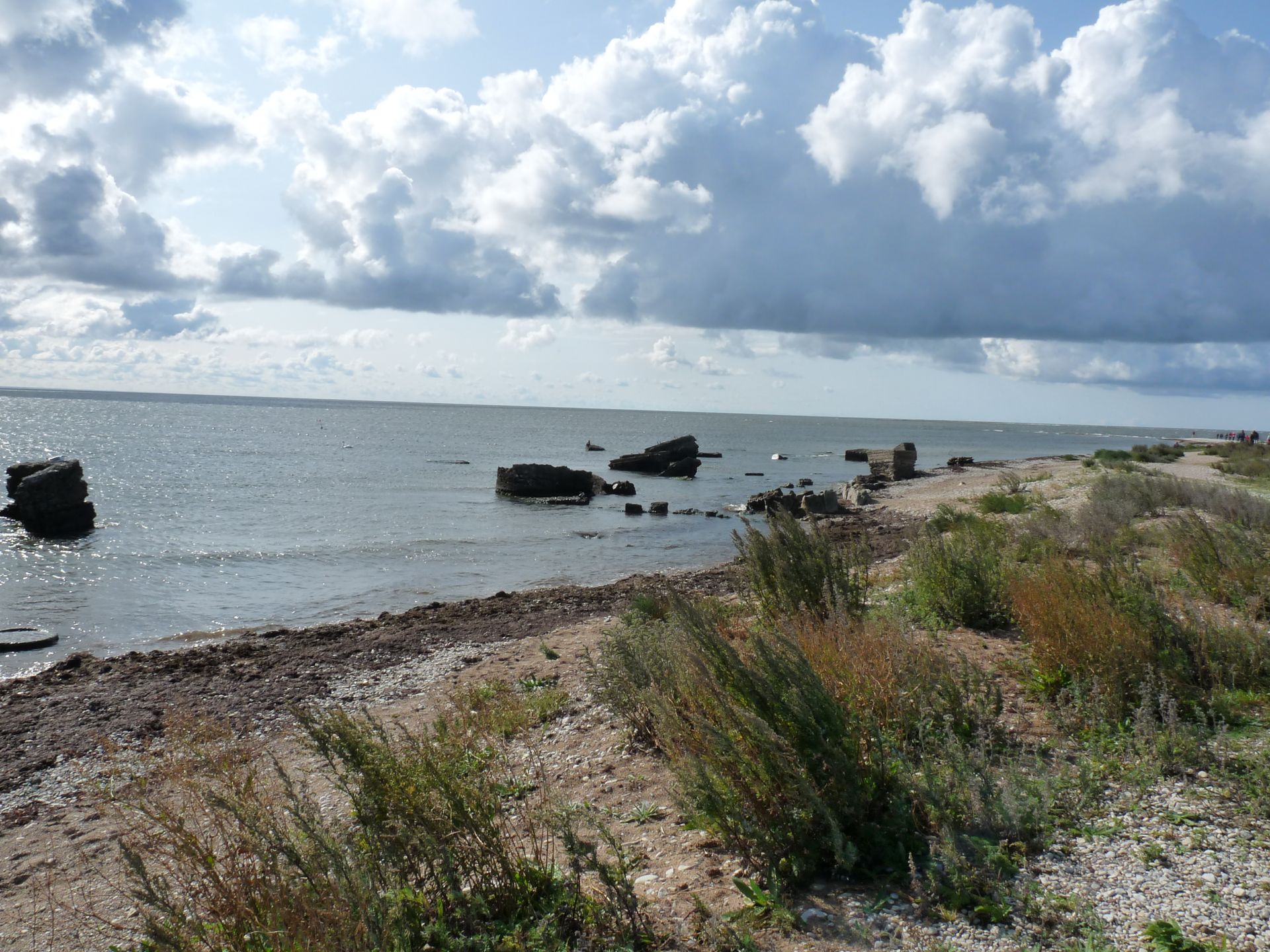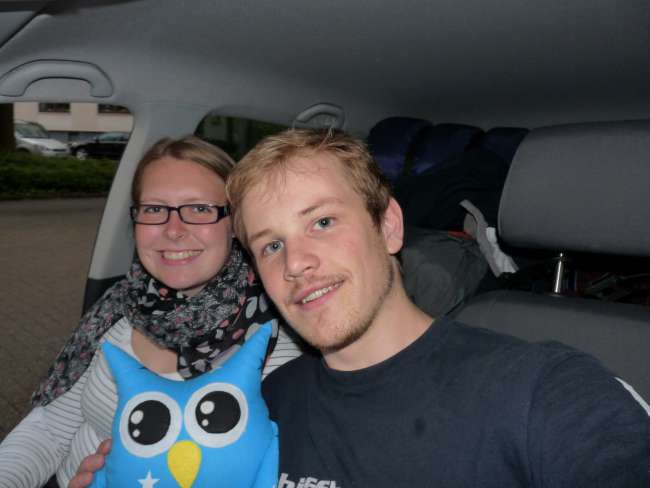Volgograd and the inclination towards gigantism
ප්රකාශිතයි: 20.09.2017
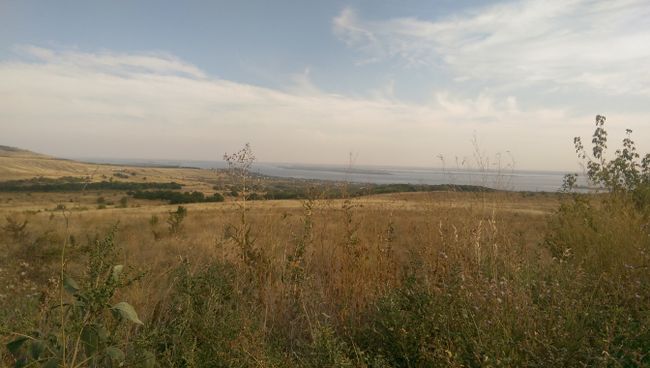
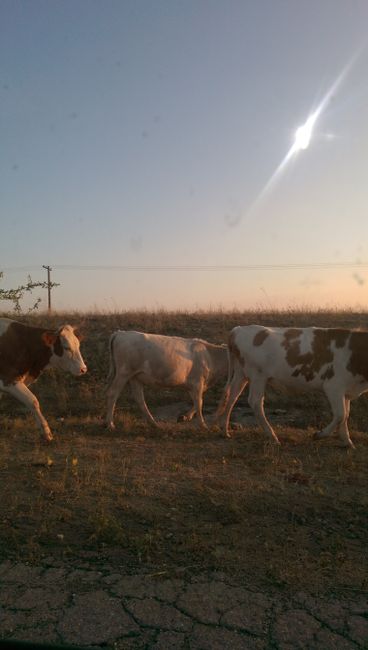
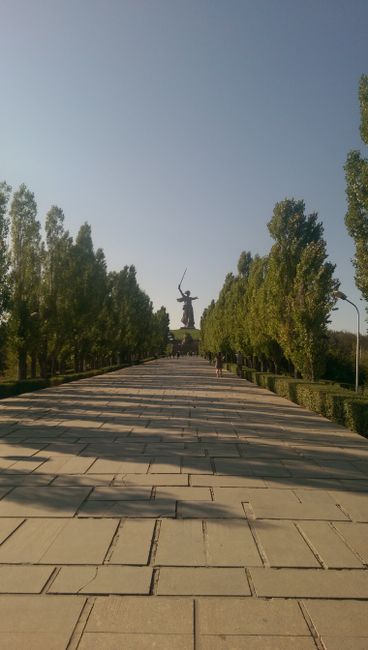
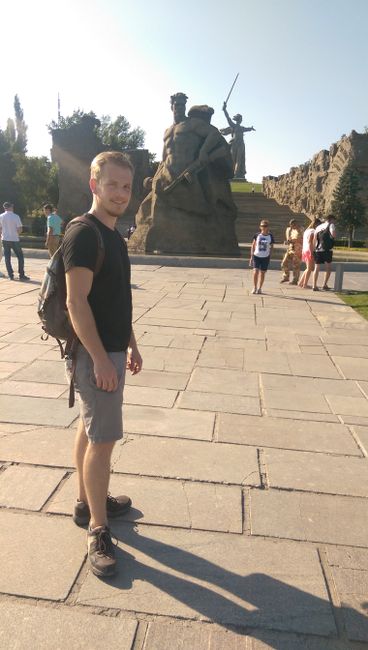
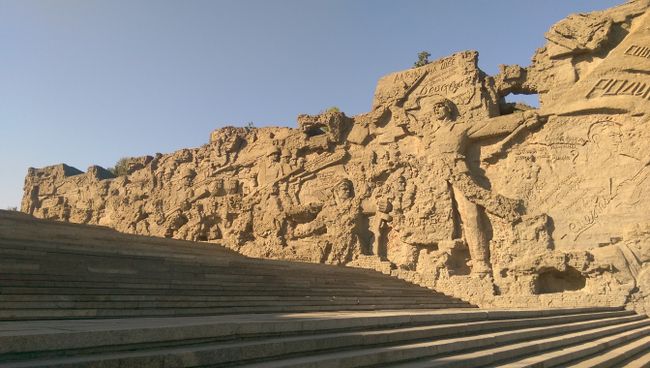
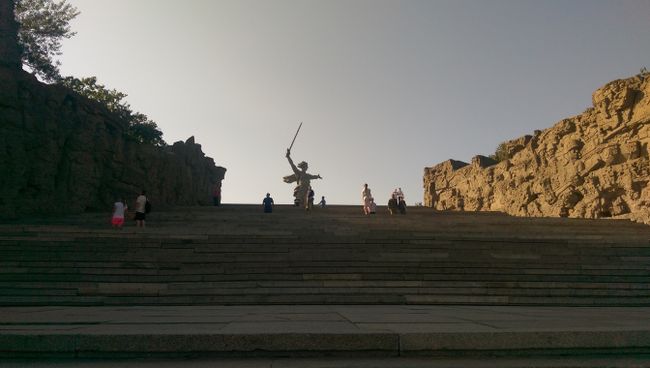
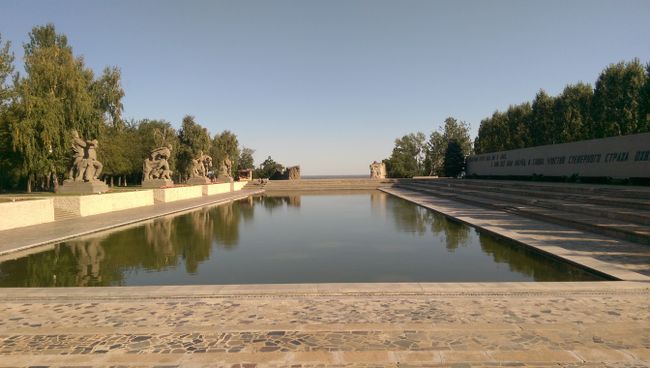
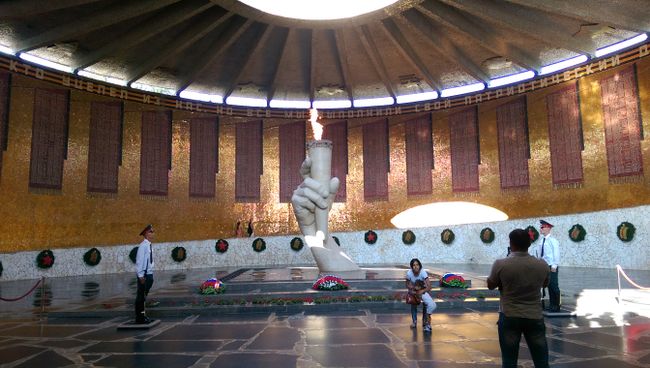
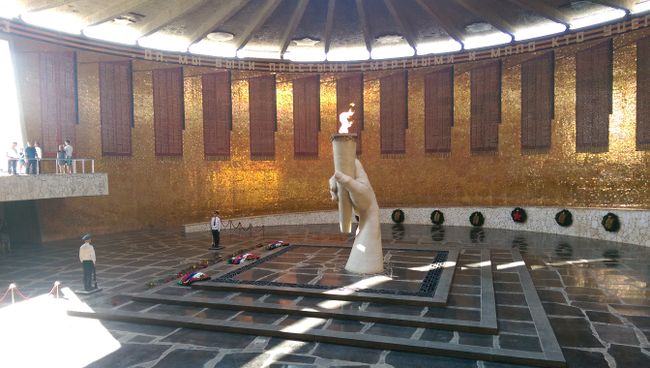
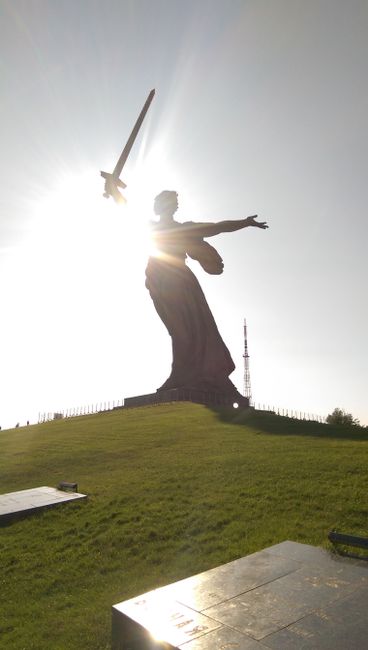
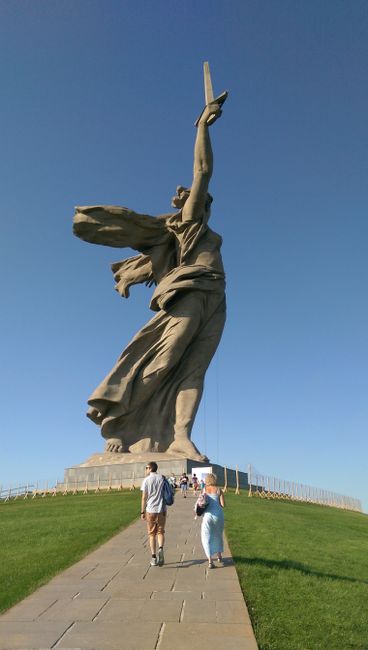
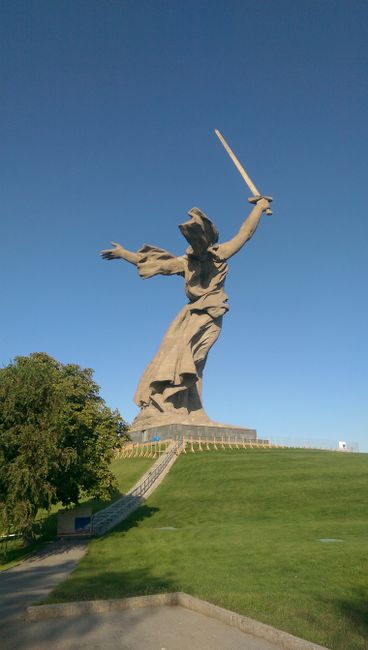
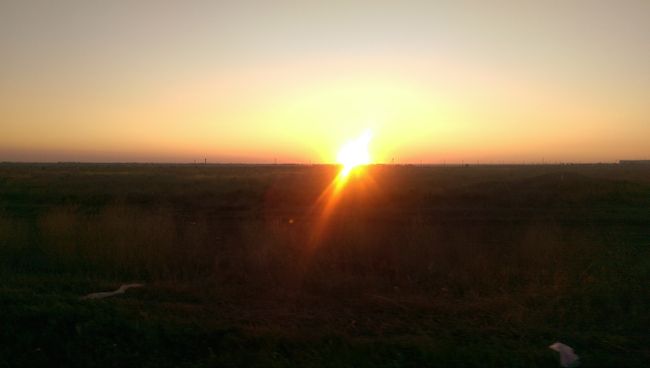
පුවත් පත්රිකාවට දායක වන්න
Volgograd, September 14, 2017
We have now arrived in Volgograd. In my imagination, Volgograd has always been a very cold, somehow swampy place. The opposite is true. The sun is relentlessly burning at 35 degrees from the sky. The forest from the north of Russia has transformed into a steppe landscape and everywhere along the roadsides, you can buy watermelons for incredibly low prices. One kilogram of watermelon costs about 10 cents. The landscape surrounding Volgograd is fantastic. The Volga River winds its way through sandy hills. This massive river is dotted with small islands everywhere and large cargo ships on the river look like ants. I always thought that the Elbe River was a big river, now I know better... The last bridge that crossed the Volga River at Saratov was just under 3 kilometers long. Volgograd was rebuilt from scratch after the war. Stalin was able to have a field day here, so the streets are certainly dominated by huge monumental buildings and gigantic boulevards. Lenin's pictures are proudly displayed on the houses everywhere. The city seems to overflow with pathos. Hanna and I just want to take a walk through the city and then continue our journey. However, there is one thing we will not miss. In World War II, the Battle of Stalingrad famously turned the tide of the war for the Soviets, and of course, it had to be properly honored after the war. For this reason, a monument was built on Hill 102, one of the most fiercely contested hills of the Battle of Stalingrad. If you think you have seen a big statue with the Statue of Liberty or the statue of Jesus in Rio, think again. The Russians promptly erected an 84 meter tall concrete representation of Mother Russia on the hill (for comparison: the Statue of Liberty is only half as tall). The fiercely looking woman raises a sword high. This monstrous structure can be seen from all over the city. A staircase leads up the hill. One step for each day of the Battle of Stalingrad. Along the way, there are statues of soldiers, wounded individuals, and civilians on the left and right side of the path. Then there are additional steps between two concrete walls with artistically crafted war scenes. Machine gun fire and Russian combat songs blare from hidden speakers. It all seems a bit surreal but is still surpassed by the Hall of Heroes. The cantilevered concrete hall at the foot of the statue is a dream of golden mosaic tiles. In the middle, as usual, a torch burns in a gigantic stone hand. Two soldiers stand guard in front of the torch. When the changing of the guard takes place, the relief soldier marches in, picks up a cloth from under the uniform cap of the guard soldier, wipes the sweat from his face, and then puts the cloth back under the cap. Then they switch places. On the wall of the hall, all fallen Soviet soldiers are listed by name. Through this hall, you can reach the feet of the statue and a park with a magnificent view and can recover from the display of Soviet strength. This is much needed. Contrary to my expectations, the city itself is quite beautiful and we eat very well at a Georgian restaurant. Afterward, we continue our journey. We have chosen the right bank of the Volga River near the Kazakh border to continue our way towards Astrakhan.
පුවත් පත්රිකාවට දායක වන්න
පිළිතුර
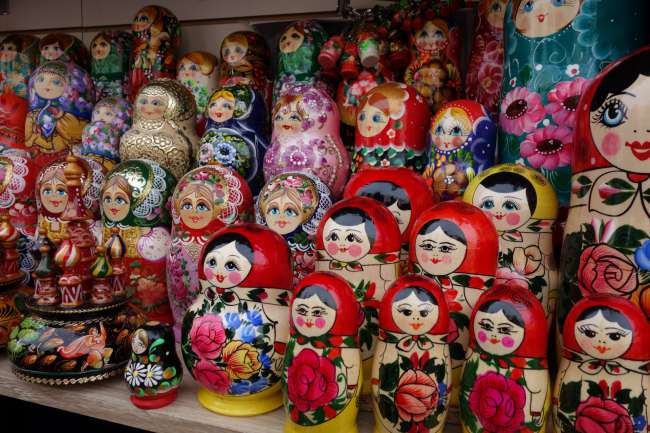
සංචාරක වාර්තා රුසියානු සමූහාණ්ඩුව
